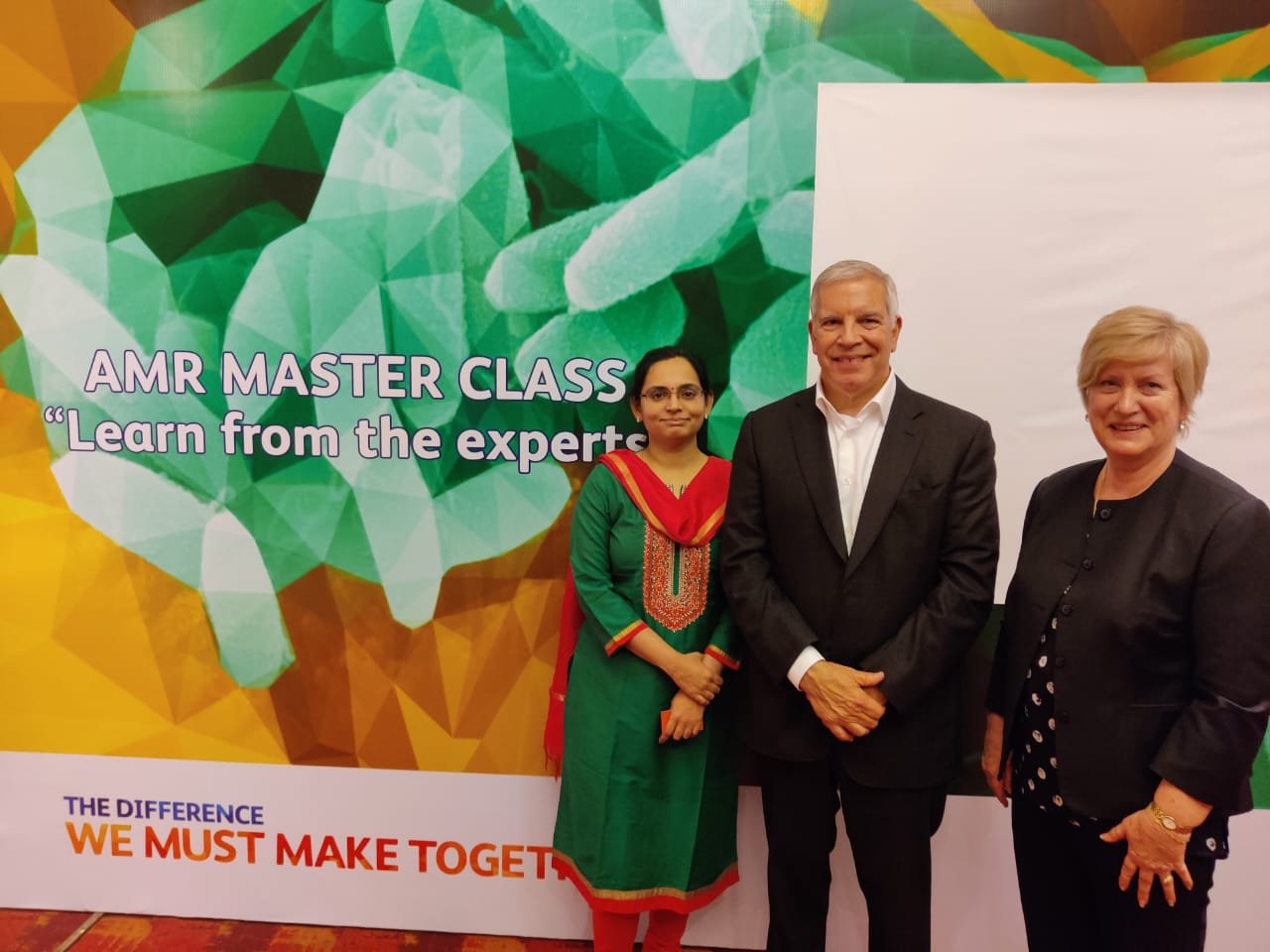BD India organises masterclass to combat AMR
December 12, 2019 | Thursday | News
The masterclass was organized at Bengaluru, Hyderabad and Chennai
Addressing the concern of the most significant threats to the health and well-being of the world’s population, BD, a leading medical technology company in India recently organized a multi-city masterclass on Antimicrobial Resistance (AMR). The masterclass organized at Bengaluru, Hyderabad and Chennai witnessed the participation of international speakers, healthcare experts and city’s leading microbiologists. The key topics deliberated were on the impact of AMR to patients and impact of patient outcomes through improved diagnostic solutions.
Dr. Patrick R Murray, VP-Scientific Affairs, BD Life Sciences said, “The rapidly growing problem of antimicrobial resistance (AMR) must be addressed now. A major contributor to this problem with the widespread use of empiric therapy that is frequently inactive. Only with the use of rapid, accurate diagnostic tests can physicians identify specifically the infecting organism and move from empiric therapy to appropriate directed therapy. Additionally, diagnostic tests can identify patients who are asymptomatic carriers of antibiotic-resistant bacteria and, in conjunction with a well-organized infection control and prevention program, prevent the spread of these organisms in the medical community. Diagnostic Stewardship, Antibiotic Stewardship, and Infection Control and Prevention Stewardship are the foundation for solving the AMR problem.”
AMR occurs when antimicrobials (the life-saving drugs), which are commonly used to treat infections, stop working as the organism becomes resistant to the drug. It is projected to become one of the leading causes of human mortality and will cause 10 million deaths each year by the year 2050, exceeding those caused by cancer. India carries one of the largest burdens of drug-resistant pathogens worldwide and it is one of the largest consumers of antibiotics worldwide. [i] Healthcare settings are high-risk environments for the spread of organisms that cause infections. 7% to 10% of hospitalized patients and 33% of patients in intensive care units contract at least one healthcare-associated infection. 25% of healthcare-associated infections in long-term acute care settings are caused by antibiotic-resistant bacteria.
Dr. Savita Nagaraj, Professor & Head of Department of Clinical Microbiology, St. Johns Medical College & Hospital, Bengaluru said, “The threat of Antimicrobial resistance is a global problem, hospital and community, and we cannot afford to ignore it. Our only hope to save the existing molecules (for today and tomorrow) is to adopt a holistic approach by integrating conscious, rational use of antibiotics (prescribers and users) and ensuring good hygienic and safe infection control practices, to prevent transmission. It is a serious concern for the future of all mankind.”
In India, lately we have received various concerns from patients on AMR. With the advancing of these bacteria and the number of infections attacking us, it is very essential that we curb the issue of AMR as resistant infections spread easily among patients in health care facilities. Hence, it becomes very critical for India to tackle this problem before it affects the masses and leads to mortality”, said Dr. Iyer Ranganathan N, Senior Consultant Microbiology and Infectious Diseases, Global Hospitals, Hyderabad.
Dr. Anusha Rohit, Head of Department of Microbiology and Sr. Consultant, Madras Medical Mission, Chennai said, “Preventing the occurrence and spread of infections is the first line of defense in addressing AMR. Investments in improved water and sanitation are critical components of community-based prevention. All healthcare facilities need to implement required cleaning and disinfection protocols and should properly dispose the biohazardous wastes to reduce the potential spreading of healthcare- associated infections. Improving the quality of these practices and use of advanced decontamination technologies are the need of the hour. Laboratories need to focus on diagnostic techniques that are quality controlled and up-to-date to ensure proper testing and reporting of AMR.”
Preventing the occurrence and spread of infections is the first line of defence in addressing AMR. Accurate diagnosis is essential to reducing misuse of antimicrobials as diagnostic tests can identify the organism causing the infection. Once the infective organism has been identified, diagnostic tests can also determine which specific antimicrobials are effective and can guide the physician in appropriate drug choice and dosage.
On this occasion, Pavan Mocherla, Managing Director, BD-India/South Asia said, “Antimicrobial resistance (AMR) is one of the most serious global public health threats in this century. The capabilities of BD as a company are highly relevant to the global objective to prevent and control AMR. With a broad portfolio of AMR solutions supporting infection prevention and control, diagnostic testing and surveillance and reporting, we believe we can enhance our customers’ ability to contain AMR and achieve effective antimicrobial stewardship. BD also joined with organizations around the globe to create the Antimicrobial Resistance Fighter Coalition in order to raise awareness on AMR through the "I'm a resistance fighter™" campaign. We encourage you to join us in raising awareness about AMR and play an important role in the fight against its spread.”
BD diagnostic platforms reduce the risk of transmission of HAIs, promote fully informed prescribing decisions and enhance clinical outcomes by rapidly identifying major drug-resistant threats identified by the World Health Organization and the U.S. Centers for Disease Control and Prevention.
- Rapid detection and identification of infectious agents - Identification systems, Automated molecular diagnostic systems, Automated culture systems, Laboratory automation with microbial imaging Applications (BD BactecTM FX System, BD MaxTM System & BD Bruker MBTTM)
- Precise susceptibility testing - Automated susceptibility testing systems, Antimicrobial susceptibility test discs, Automated liquid culture and drug susceptibility testing for tuberculosis (BD PhoenixTM M50 System, BD BactecTM MGIT System & BD BBLTM Sensi Disc- Susceptibility Test Disc)









